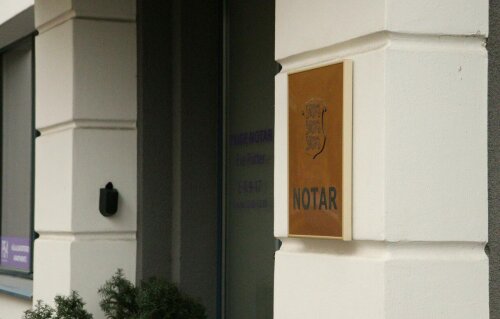Best Child Custody Lawyers in Paide
Share your needs with us, get contacted by law firms.
Free. Takes 2 min.
Free Guide to Hiring a Family Lawyer
List of the best lawyers in Paide, Estonia
About Child Custody Law in Paide, Estonia
Child custody law in Paide, Estonia, is designed to protect the best interests of children when their parents separate, divorce, or face disputes about care and upbringing. The law emphasizes both parental rights and responsibilities, ensuring that each child maintains a strong relationship with both parents whenever possible. In Estonia, “child custody” commonly refers to both legal custody (decision-making power) and physical custody (where the child lives). All proceedings are governed by the Estonian Family Law Act, with special sensitivity given to the child's individual needs, wishes, and personal development.
Why You May Need a Lawyer
Child custody situations can quickly become complex, emotionally charged, and legally challenging. You may need a lawyer in Paide if you are:
- Going through a divorce or separation and need to formalize child custody arrangements
- Disagreeing with the other parent about living arrangements, schooling, or healthcare decisions for your child
- Concerned about the safety or wellbeing of your child with the other parent
- Seeking to modify an existing custody agreement due to change in circumstances
- Facing international issues, such as one parent planning to move abroad with the child
- Involved in disputes about visitation rights (“access” or “contact”)
- A grandparent or another guardian seeking custody or visitation rights
A lawyer can explain your rights, help negotiate agreements, represent you in court, and ensure that the legal process is fair and in your child’s best interests.
Local Laws Overview
In Paide, as part of Estonia, child custody is governed by the Estonian Family Law Act. Key points to know include:
- Best Interests of the Child: The primary consideration is always what serves the child’s welfare and development best.
- Joint Custody Preference: Courts typically favor joint custody, allowing both parents to participate in making major decisions.
- Physical and Legal Custody: Custody includes both the right to determine the child’s place of residence and rights involving decisions related to healthcare, education, and upbringing.
- Parental Agreements: Parents are encouraged to agree on custody and visitation terms whenever possible. Such agreements may be confirmed by the court.
- Court Involvement: If parents cannot agree, family court will intervene to determine arrangements.
- Modification: Existing custody arrangements can be changed if circumstances significantly change or if the child’s welfare requires it.
- Child’s Opinion: If the child is mature enough to express views, the court will consider their wishes.
- International Cases: Estonia follows international conventions, such as the Hague Convention, regarding cross-border child custody issues.
Frequently Asked Questions
What is the difference between legal custody and physical custody in Estonia?
Legal custody involves making important decisions for your child, such as education and healthcare. Physical custody refers to where the child lives daily. Both types can be shared or granted only to one parent.
Do Estonian courts always award custody to mothers?
No. Estonian law does not favor mothers or fathers automatically. The court’s decision is based on the child’s best interests, considering each parent's ability to provide care and stability.
Can children choose which parent to live with?
The court will consider the child’s opinion if they are mature enough. However, the child's best interests remain the priority, and the final decision may not always match the child's wishes.
What happens if parents cannot reach an agreement regarding custody?
If parents cannot agree, either parent can apply to the family court, which will then make a decision based on the child's welfare and circumstances.
How are visitation rights determined in Paide?
Visitation, or contact rights, are typically granted to the parent whom the child does not live with. The court considers the child's best interests, the parent's circumstances, and the practicalities of maintaining regular contact.
Can a custody agreement be changed after it is approved?
Yes. If circumstances change significantly or the current arrangement no longer serves the child's best interests, parents can request a modification through the court.
What should I do if the other parent violates the custody arrangement?
You can first try to resolve the issue amicably. If that fails, legal steps such as mediation or a court order enforcement may be necessary. The court can help ensure compliance with the custody arrangement.
Can grandparents or other family members get custody or visitation rights?
Grandparents and close relatives can apply to the court for custody or visitation rights, especially if the parents are unable or unfit to care for the child. The court will decide based on the child’s best interests.
Is mediation required in child custody disputes?
Mediation is not mandatory, but it is encouraged and sometimes ordered by the court to help resolve disputes in a less adversarial manner.
What if one parent wants to move abroad with the child?
Moving abroad with a child requires the other parent’s consent or a court decision. Unauthorized relocation may result in legal consequences, including the child's return under international agreements.
Additional Resources
If you are seeking more information or support related to child custody in Paide, consider reaching out to the following resources:
- Estonian Ministry of Justice: Oversees family law matters
- Local Family Court (Järva Maakohus): Handles child custody cases in Paide region
- Social Insurance Board (Sotsiaalkindlustusamet): Offers family support and child protection services
- Estonian Union for Child Welfare: Provides advocacy and support for children’s rights
- Estonian Bar Association: Helps find qualified family law lawyers in Paide
Next Steps
If you are experiencing a child custody issue in Paide, Estonia, consider the following steps:
- Try to discuss and reach an agreement with the other parent whenever possible, focusing on your child’s best interests
- Document all relevant information, including your child’s needs and any existing arrangements
- Consult with a family law lawyer in Paide for advice tailored to your situation
- If necessary, file an application with the local family court (Järva Maakohus)
- Remain open to mediation or other alternative dispute resolution methods
- Utilize available support services, such as social workers or child welfare organizations
Navigating child custody matters can be stressful, but understanding your rights and options is the first step. Professional legal advice ensures your and your child’s interests are properly protected throughout the process.
Lawzana helps you find the best lawyers and law firms in Paide through a curated and pre-screened list of qualified legal professionals. Our platform offers rankings and detailed profiles of attorneys and law firms, allowing you to compare based on practice areas, including Child Custody, experience, and client feedback.
Each profile includes a description of the firm's areas of practice, client reviews, team members and partners, year of establishment, spoken languages, office locations, contact information, social media presence, and any published articles or resources. Most firms on our platform speak English and are experienced in both local and international legal matters.
Get a quote from top-rated law firms in Paide, Estonia — quickly, securely, and without unnecessary hassle.
Disclaimer:
The information provided on this page is for general informational purposes only and does not constitute legal advice. While we strive to ensure the accuracy and relevance of the content, legal information may change over time, and interpretations of the law can vary. You should always consult with a qualified legal professional for advice specific to your situation.
We disclaim all liability for actions taken or not taken based on the content of this page. If you believe any information is incorrect or outdated, please contact us, and we will review and update it where appropriate.









